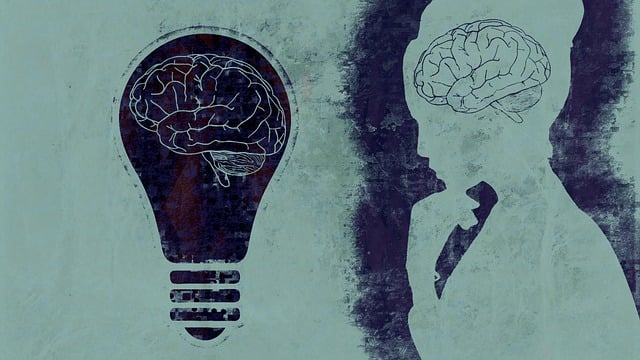Mental health professionals face significant risks, including burnout and secondary trauma, due to intense work environments and intimate interactions with patients experiencing severe mental illnesses or trauma. Organizations like Westminster Abuse Survivors Therapy (WAST) play a vital role in supporting these professionals through specialized therapy services focusing on inner strength development and mental health awareness. Effective strategies, such as self-awareness exercises, crisis intervention guidance, and holistic approaches like Mind Over Matter principles, are essential to mitigate risks, enhance resilience, and create safe spaces for both survivors and practitioners. Learning from case studies at WAST empowers professionals to implement robust safety protocols, navigate complex therapy situations, and foster cultural competency through ongoing training.
Mental health professionals strive to create safe spaces, yet they themselves face unique risks. This article delves into the essential risk assessment strategies for these practitioners, especially those working with sensitive populations like Westminster abuse survivors. We explore the specific challenges arising from this therapy context and present a comprehensive framework. By examining case studies, we highlight best practices for mitigating risks, ensuring the well-being of both professionals and clients in Westminster Abuse Survivors Therapy settings.
- Understanding the Unique Risks Faced by Mental Health Professionals
- The Impact of Working with Westminster Abuse Survivors
- Essential Components of a Comprehensive Risk Assessment Framework
- Strategies for Mitigating and Managing Risks in Therapy Settings
- Case Studies: Learning from Past Experiences to Enhance Safety Protocols
Understanding the Unique Risks Faced by Mental Health Professionals

Mental health professionals often find themselves navigating a unique and complex landscape of risks that can significantly impact their well-being. Unlike other healthcare sectors, this field involves intimate and sensitive interactions with patients who may be struggling with severe mental illnesses, trauma, or challenging behaviors. The potential for emotional exhaustion is high due to the intense nature of their work. These professionals must constantly manage difficult situations, often dealing with complex ethical dilemmas and high-stress environments.
The risk of burnout is a very real concern, as these practitioners dedicate themselves to helping others overcome significant mental health challenges. This commitment can lead to prolonged periods of high workload, emotional strain, and limited self-care opportunities. Additionally, the potential for secondary trauma, where professionals internalize their patients’ traumatic experiences, poses a unique risk. Organizations like Westminster Abuse Survivors Therapy play a vital role in supporting these professionals with specialized therapy services designed to foster inner strength development and promote mental health awareness. By implementing effective burnout prevention strategies for healthcare providers, it is possible to mitigate these risks and ensure the long-term resilience of mental health professionals.
The Impact of Working with Westminster Abuse Survivors

Working with Westminster Abuse Survivors presents unique challenges for mental health professionals. The experience of trauma can profoundly impact an individual’s emotional state and overall well-being, making effective therapy essential. Many survivors struggle with mood management, as they navigate the complex emotions arising from their past experiences. Therefore, therapists must be equipped with strategies that promote healing and regulate affect, ensuring a safe and supportive environment.
Self-awareness exercises and crisis intervention guidance play pivotal roles in this process. By fostering self-reflection, professionals can better understand the survivor’s perspective and tailor their approach accordingly. Crisis intervention techniques are crucial to managing acute distress and preventing re-traumatization. Through these practices, mental health experts can empower survivors to develop coping mechanisms, enhance resilience, and work towards restoration and healing.
Essential Components of a Comprehensive Risk Assessment Framework

A comprehensive risk assessment framework for mental health professionals should encompass several crucial components tailored to address the unique challenges within the field. Firstly, it must consider the Risk Assessment for Mental Health Professionals as a dynamic process that evolves with each client’s journey. This includes regular reviews and updates to account for changes in the individual’s mental state and external factors, such as environmental stressors or emerging issues like rising anxiety levels.
Secondly, integrating Mind Over Matter Principles can enhance the assessment’s effectiveness. By recognizing the interplay between thoughts, emotions, and behaviors, professionals can uncover hidden patterns and triggers. This approach, akin to what Westminster Abuse Survivors Therapy employs, enables a holistic understanding of clients’ experiences, fostering more targeted interventions for Anxiety Relief. Such an inclusive framework ensures that mental health practitioners can offer tailored support while mitigating potential risks in a supportive manner.
Strategies for Mitigating and Managing Risks in Therapy Settings

Mental health professionals must adopt proactive strategies to mitigate and manage risks in therapy settings, especially when working with vulnerable populations like Westminster abuse survivors. One key approach is cultivating empathy building strategies that foster secure therapeutic alliances, enabling clients to feel understood and supported. This not only enhances trust but also encourages open communication, allowing professionals to identify potential risks early on.
Additionally, providing healthcare provider cultural competency training is paramount. By understanding the diverse backgrounds and experiences of their clients, professionals can offer tailored care that respects individual needs. This training equips them with the skills to navigate sensitive cultural issues, ensuring a safe and inclusive environment. Moreover, integrating emotional well-being promotion techniques into therapy sessions empowers both survivors and providers to manage stress and maintain resilience throughout the therapeutic journey, thereby reducing potential triggers and risks associated with re-traumatization.
Case Studies: Learning from Past Experiences to Enhance Safety Protocols

Mental health professionals are continually navigating complex scenarios, and learning from past experiences is a vital aspect of enhancing safety protocols. Case studies from institutions like Westminster Abuse Survivors Therapy (WAST) serve as powerful tools to understand and mitigate risks in therapy settings. By studying real-life instances, healthcare providers can identify potential vulnerabilities and develop robust strategies to protect both patients and themselves.
These case studies often highlight the emotional healing processes involved in trauma recovery and provide insights into the challenges faced by both survivors and therapists. Moreover, they underscore the importance of confidence-boosting techniques within therapeutic environments and the need for ongoing healthcare provider cultural competency training to address diverse patient needs effectively.
Mental health professionals play a vital role in supporting individuals, especially those who have experienced trauma like Westminster abuse survivors. However, this work comes with unique risks that must be acknowledged and managed effectively. By implementing a comprehensive risk assessment framework, incorporating strategies tailored to the specific needs of Westminster abuse survivors, and learning from case studies, therapists can create safer environments. This proactive approach ensures that both professionals and clients are protected, fostering a more secure and supportive therapeutic setting.














